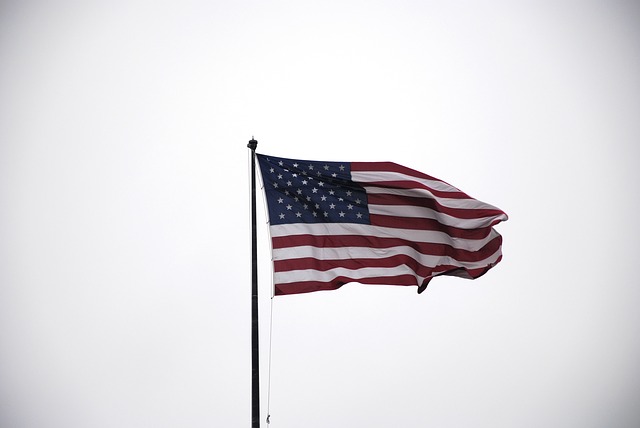As the world’s largest market, China offers U.S. retailers lucrative opportunities to reach consumers who desire – and increasingly buy – products that are ‘Made in the USA’ through cross-border e-commerce.
Why is China important? With $681 billion in online retail sales last year, China is poised to be the first country to reach $1 trillion by 2020, according to Forrester. China faces explosive e-commerce growth, as 19% of all retail sales take place online (vs. 9.5% in the U.S.); Forrester predicts it will reach 24% by 2021.
Today the U.S. and China represent opposing consumption trends. Demand in the U.S. continues to decline, with store closures and bankruptcies; however, demand for U.S. products remains strong in China.
As the following chart shows, the U.S. is the top country for online overseas sales in China.
The popularity of ‘Made in the USA’ in China is great news for U.S. retailers, as it proves a large, ready market exists for their products – and cross-border e-commerce can accelerate their sales.
Several categories of U.S. products face unprecedented demand. iResearch found the hottest categories of foreign products in China include: cosmetics and personal care (46%), mom and baby care (39%), nutrition supplements (39%), and fashion and apparel (38%).
Chinese consumers consider the following three elements before purchasing U.S. products.
1. Quality
China has the largest middle class in the world, comprised of 225 million people. Their growing affluence has created a rapid “consumption upgrade,” as consumers spend their increased disposable income on high-quality U.S. imports, creating a cross-border shopping boom.
Chinese shoppers desire foreign, high-quality products from trusted sources. Comparing Chinese domestic and overseas online shopping websites, Mintel found Chinese shoppers perceive foreign sites as offering superior product quality (57% foreign vs. 21% domestic).
Why? Counterfeiting, food poisoning and poor quality products remain major issues in China, and Chinese shoppers perceive U.S. and foreign products as safer and more trustworthy than domestic goods, especially in categories like mom and baby products.
To succeed in China, U.S. retail companies must ensure quality in their products and customer experience. Chinese consumers have high standards for delivery time, packaging and customer service, which makes omnichannel supply chain optimization essential for quality assurance.
2. Brand Prestige
Chinese consumers are more likely than American consumers to admire products that are ‘Made in the USA’ for their prestige as rare, valuable status symbols. By providing a refreshing variety of merchandise in China, including big brand names and niche brands, U.S. retailers help shoppers stand out. Increasingly affluent Chinese consumers now actively search for products offering a premium experience.
Young Chinese adults, in particular, passionately seek niche brands that reflect their unique tastes and lifestyle. For instance, light-luxury is a popular new category of premium yet affordable products from retailers like Michael Kors. U.S. retailers can capitalize on demand for products ‘Made in the USA’ by educating shoppers through social media, and showing how their products fit consumer lifestyles.
3. Price
Sophisticated and tech-savvy, Chinese shoppers know exactly what they want. Just like American shoppers, Chinese consumers turn to Amazon and other online e-commerce sites to research products’ online rankings and reviews, and compare prices. They appreciate American products’ prices, which are often lower than in the domestic market. For a competitive offering, U.S. retailers must drive down their costs.
How intense is the market? Fierce price competition means U.S. retailers must deeply understand their category, pricing strategy, online traffic costs, shipping and duties. These factors impact the overall price shoppers pay, and consumers will abandon their online shopping cart if they think the total basket price is too high.
How to win in China
For sustainable growth, U.S. retailers should think beyond the U.S. borders. Compared to traditional import processes, cross-border e-commerce offers U.S. retail companies a more cost-effective way to expand into China.
With e-commerce, U.S. retailers don’t need to establish physical entities in mainland China. Instead, once online shoppers confirm their orders, retailers ship products directly to shoppers from warehouses in China’s free-trade zone or from their domestic fulfillment centers. This direct, agile approach has inspired retailers to launch their own e-commerce shops as a strategic alternative to online marketplaces, which often benefit manufacturers.
To lower risk, local market experts can help U.S. retailers navigate complex Chinese regulations, and localize their marketing to entice Chinese shoppers.
In their marketing, U.S. retailers should emphasize that their products are ‘Made in the USA,’ and they represent quality, prestige and affordability. In this age of omnichannel, shoppers can come from anywhere. To address consumers’ expectations, U.S. retail companies need a digital and social presence in China, including seamless mobile payment. By making U.S. retail companies relevant and competitive, cross-border e-commerce helps retailers and shoppers win.
Franklin Chu is managing director U.S. for Azoya International, a provider of turnkey cross-border e-commerce solutions to assist retailers looking to expand into China through a cost-effective and lower risk method. To date, over 35 retailers in 11 countries are partnering with Azoya to expand into China with ease, including French fashion retailer La Redoute, Australia’s largest pharmacy group, Sigma, as well as Feelunique, the largest online beauty retailer in Europe.
